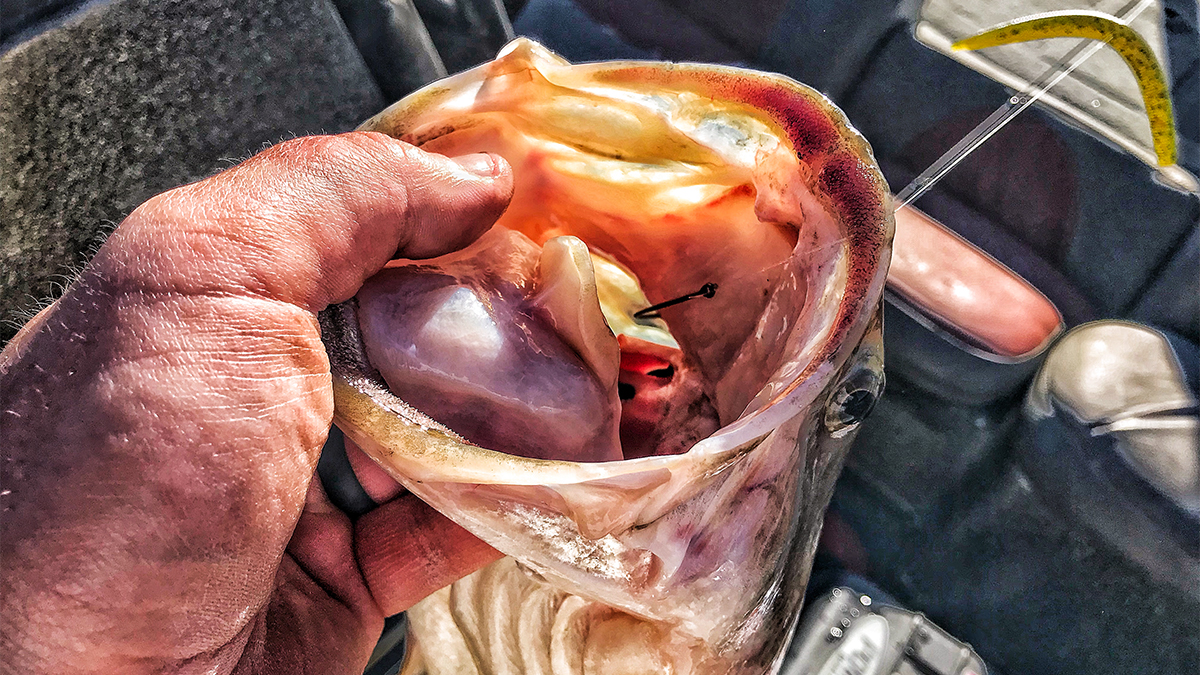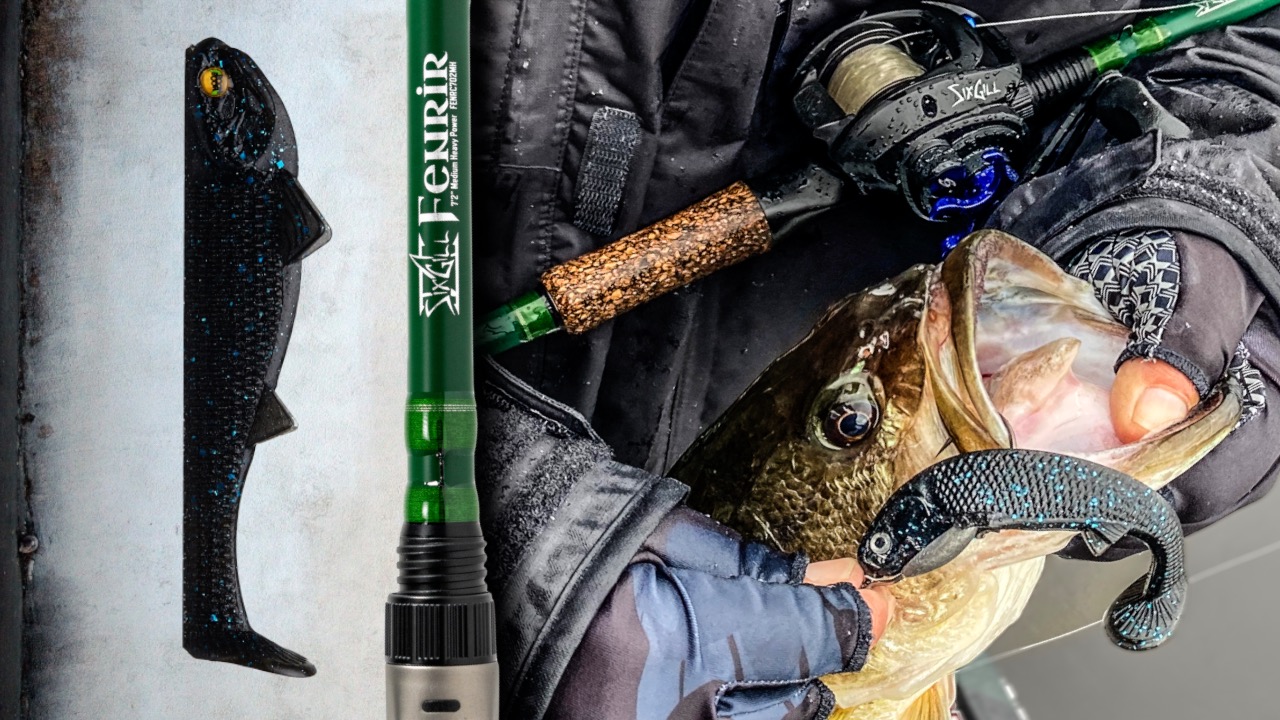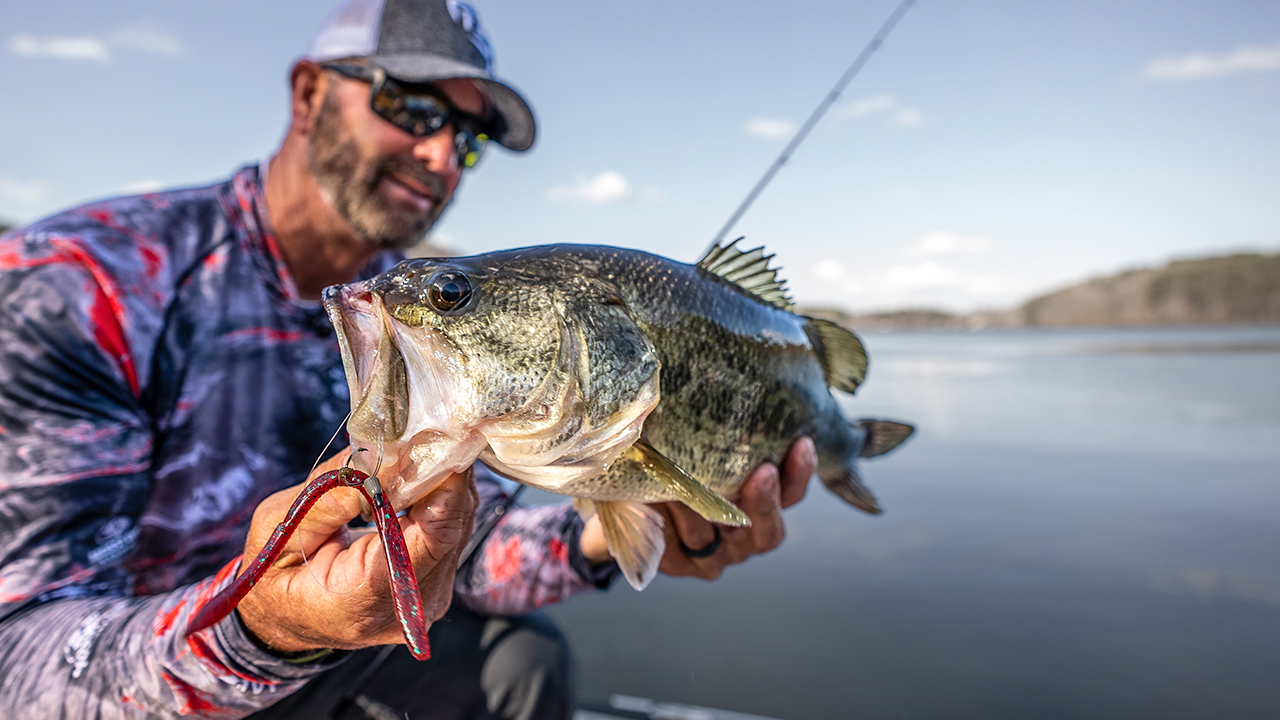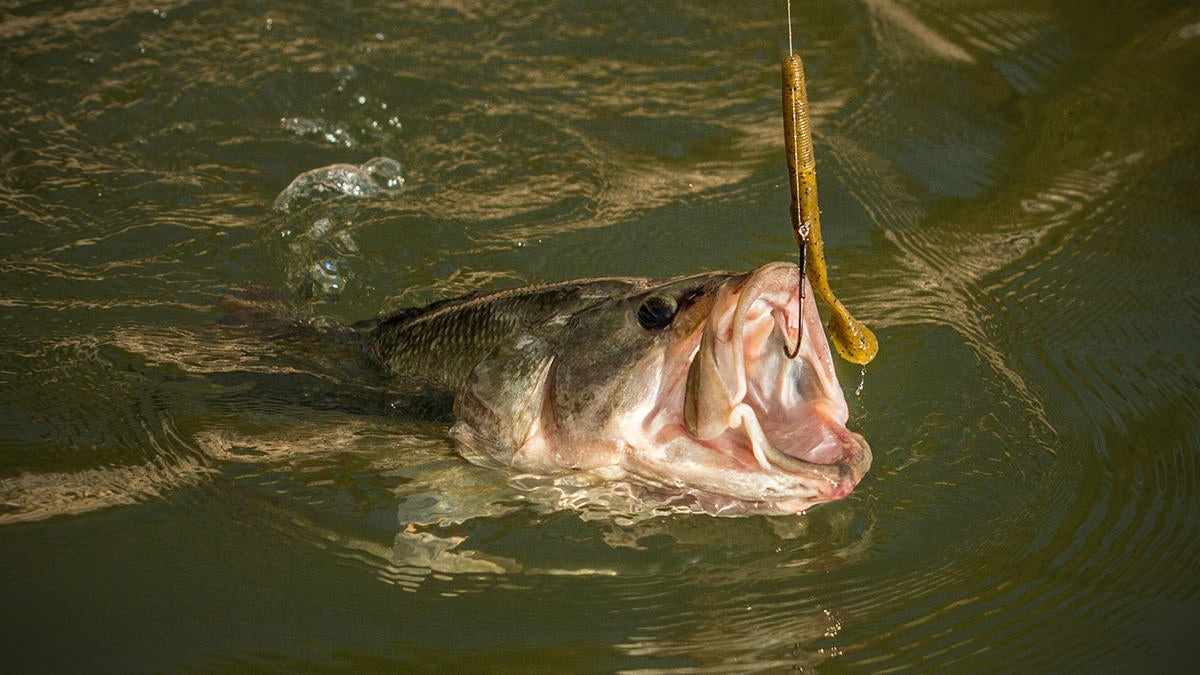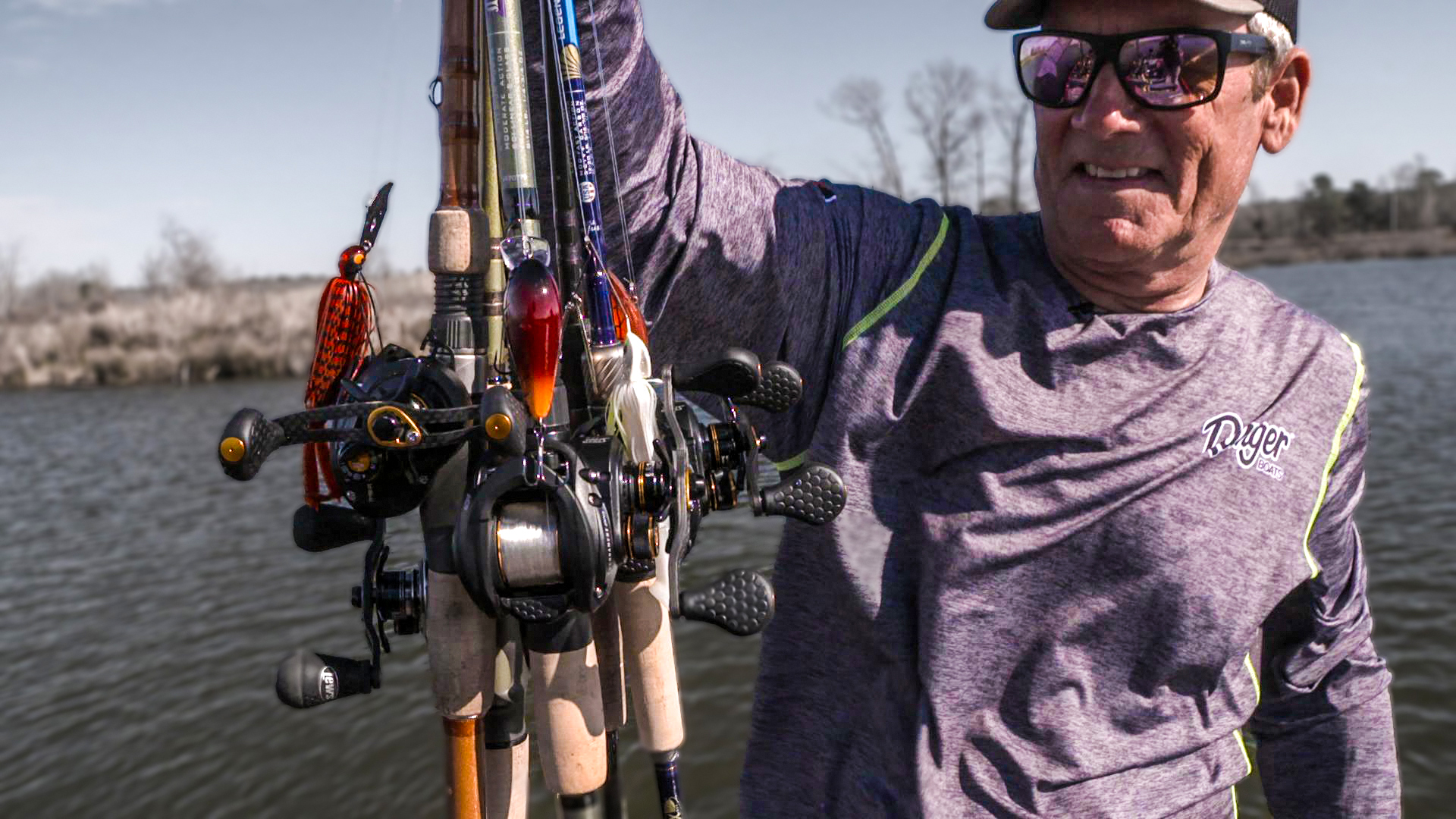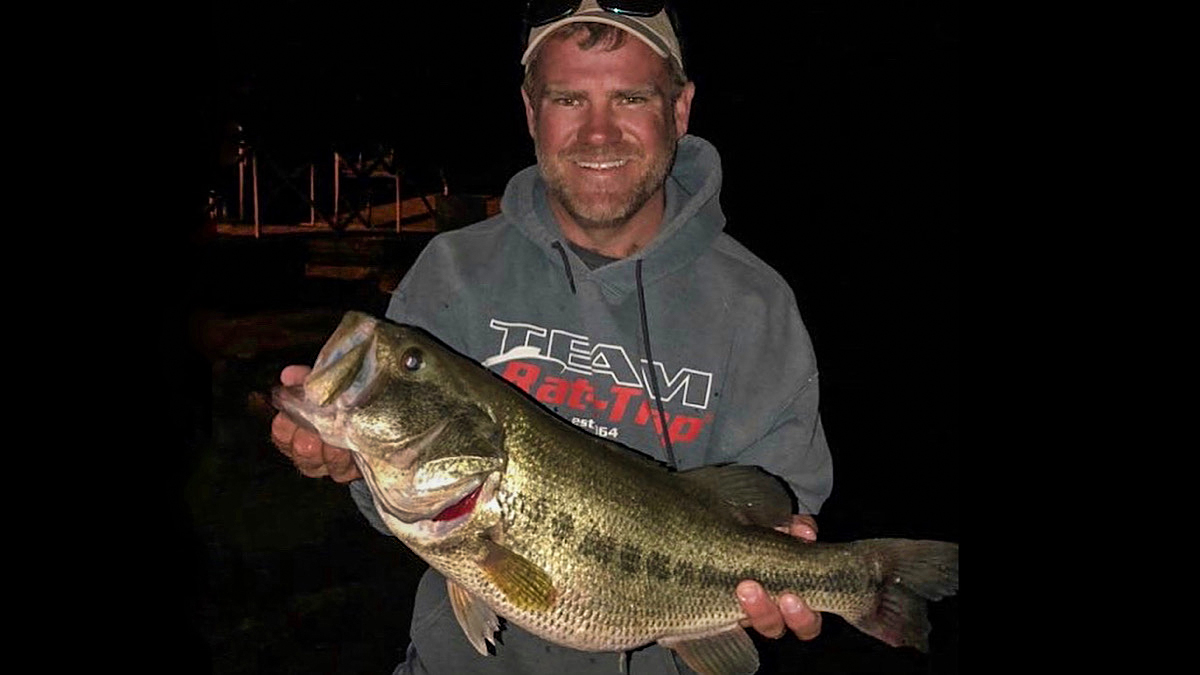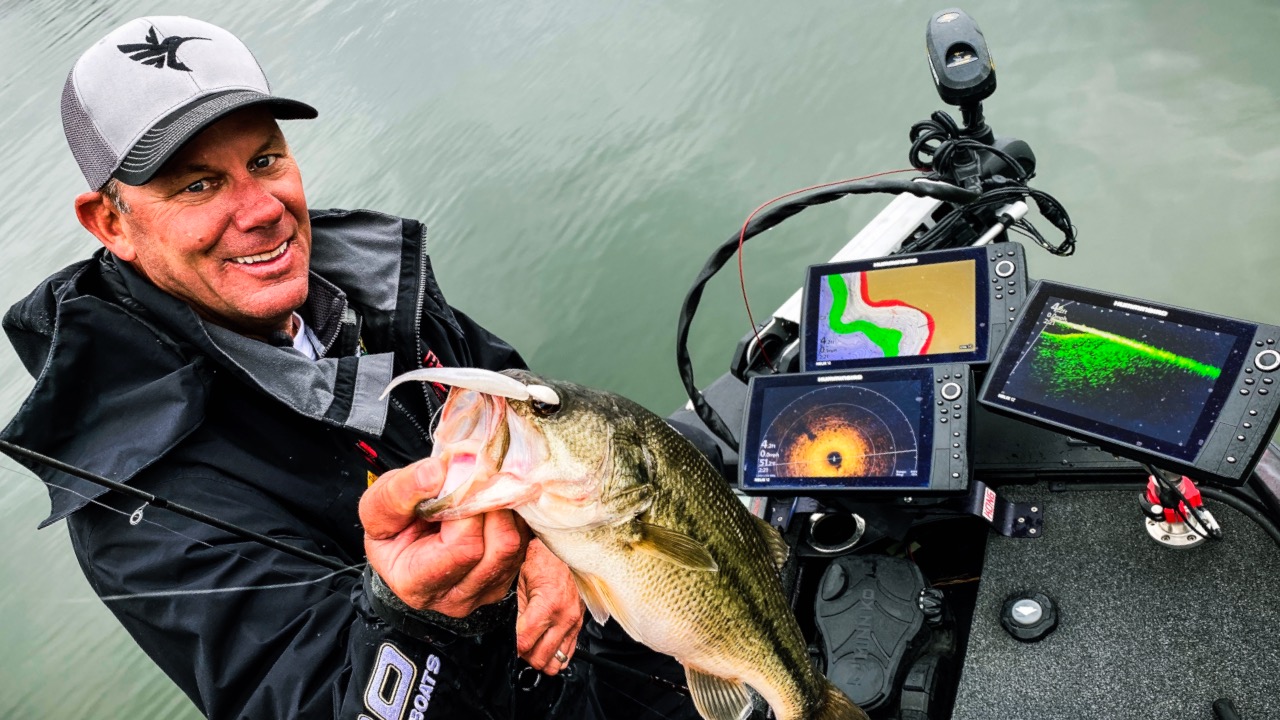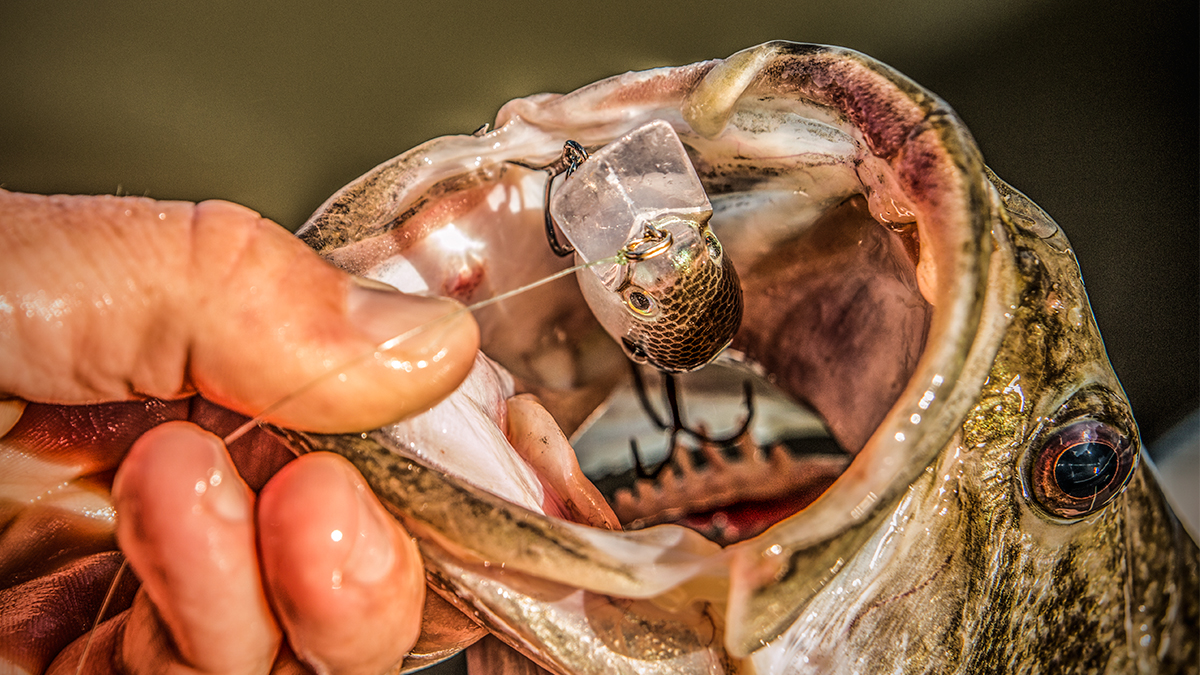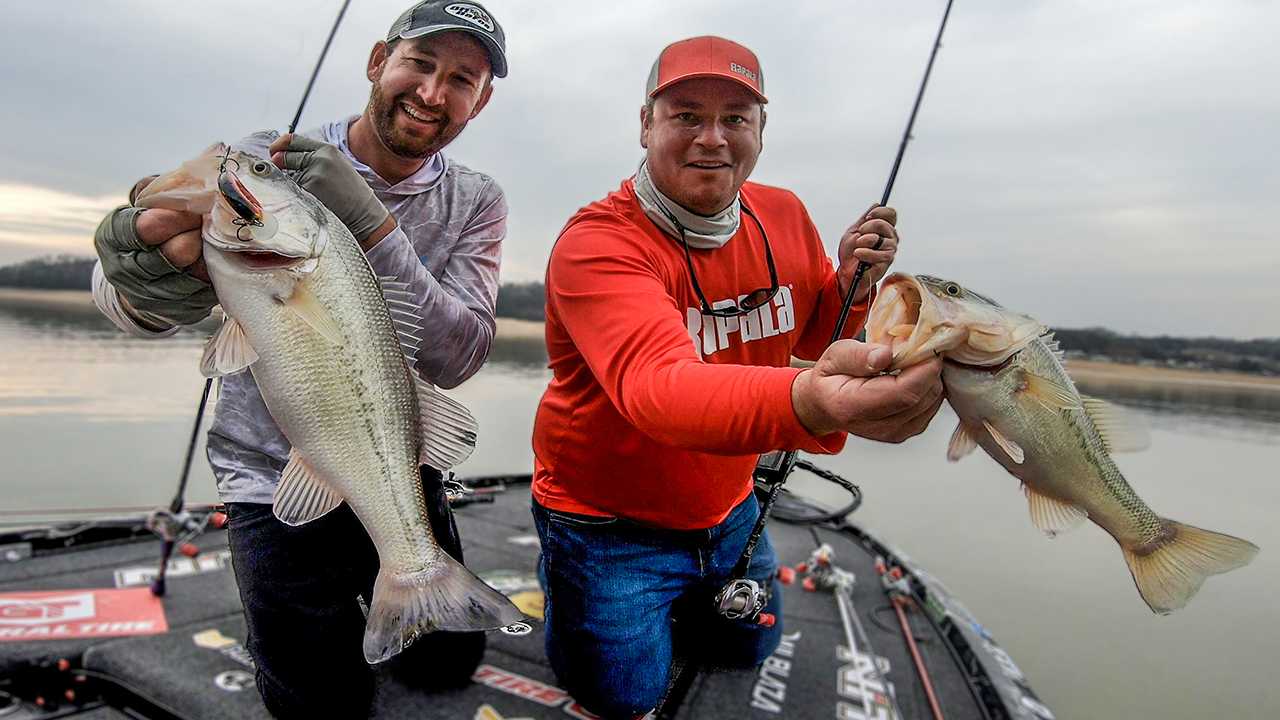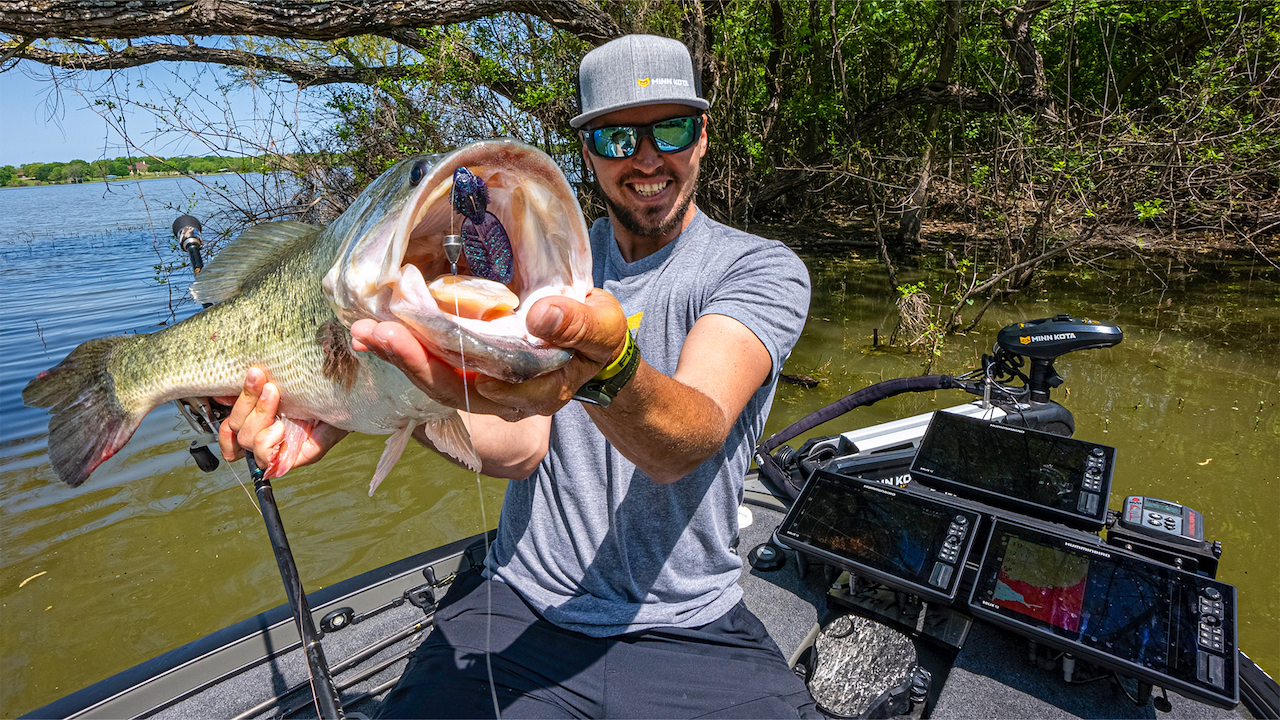I’d like to think this has been a really weird spring bass fishing season for most of us. Maybe I’m wrong, but while talking with by buddies all throughout the country, it seems like the crazy weather fronts and unpredictable rains made for a surprisingly tough spring. I think, however, that both the early spawners in some areas and the weird weather has created a perfect situation for weightless bass fishing rigs.
When it gets tough in the spring, I tend to rely heavily on weightless rigs such as floating worms, stick worms and soft jerkbaits. Not only do the crazy conditions mess with the fish but the increased fishing pressure can hurt things, too. When the weather starts turning for the better, more folks get on the water which, of course, makes the bass a lot more wary to our usual offerings. Instead of plunking the more intrusive jigs, Texas rigs and topwater frogs on top of their heads, often times a much more subtle offering can pay bigger dividends.
So on your next fishing trip this spring, I want you to do me a favor. I want you to leave your weights at home just for one day and commit to fishing weightless. It may not be your favorite way to fish but I promise it’ll lead to some unbelievable catches and a few unforgettable days of bass fishing.
Let’s run through a few tips that can increase your odds of success.
Do not be afraid of spinning gear and light line
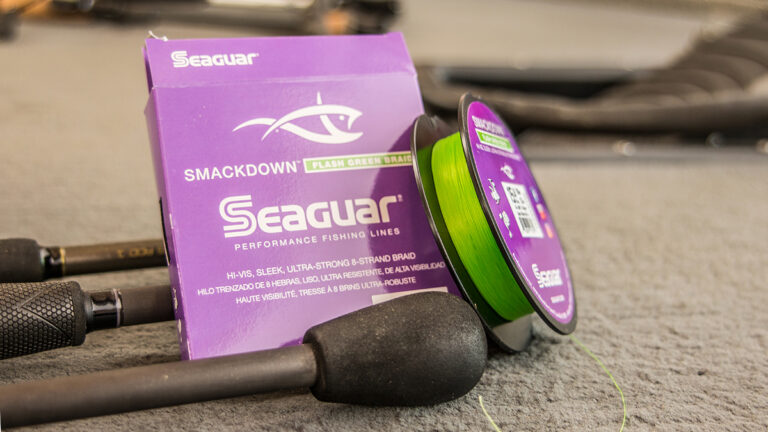
I honestly think it’s a little strange how afraid most anglers are when it comes to spinning gear. I guess we like to poke out our collective chests and brag about being a “power fisherman” or something like that. To each their own, I reckon.
But man, if you don’t have at least one 7-foot, medium-action spinning rod rigged up and ready this time of year, I think you’re sorely missing out on some of the best spring bass fishing of the year. I don’t care if you’re fishing in an expensive, brand-new bass boat or trudging along the banks of a local pond; you need to have something like this ready to cast at all times.
These female bass, who are almost always bigger than the males, have a tough go of things this time of year. They move shallow, look for prospective bedding areas, deal with crazy buck bass, endure fishing pressure and then they have to lay eggs. Even for a human, that’s a heckuva few weeks.
That’s why a weightless rig works so well. These bass aren’t always necessarily hungry. They’re often biting your bait out of annoyance, for lack of a better term. When your weightless bait (stick worm, floating worm or soft jerkbait) hovers in front of their faces without shooting to the bottom while weighted, the more chance that bait has of irritating that lethargic bass. I like to compare it to the obnoxious kid on the school bus who might have put their index finger right next to your eyeball and repeatedly said, “I’m not touching you!”
Touch me or not, I’m going to get annoyed and swat your clammy little hand out of my face. And that, my friends, is what spring bass tend to do this time of year. Put that slow-falling weightless bait in their face and irritate the snot out of them.
Because many of these bites don’t come from sheer aggressiveness, the bites will be subtle and the fish will be a bit spooky in that skinny water. So spinning gear allows you to do two very important things: You can cast these lightweight rigs a country mile and once you get a bite, the lighter action and increased sensitivity will allow you to feel those lazy, hard-to-detect bites.
I know it’s the “macho” thing to use baitcasters but I’m telling you: Have some spinning rigs ready and I can absolutely guarantee you’ll get more bites throughout the spring bass fishing season.
Use some sort of high-visibility fishing line

I know bass fishing can get way to complicated at times. I totally get that and I do my very best to keep things a simple as humanly possible. But if you plan to fish these weightless rigs this spring, I strongly suggest getting a spool or two of high-visibility line. I say that because the large majority of your bites are going to occur as your plastic is falling to the bottom on a slack line. If you can’t see your line twitch or jump when the bite occurs, you’re putting yourself at a major disadvantage in regards to bite detection and hookup ratio.
High-visibility line can mean different things to different people and of course, everyone’s eyes are different. You might be able to see different colors better than I can. But I would certainly suggest experimenting with a few different things. I have some friends who use 8-pound fluorescent yellow crappie fishing line with these weightless techniques and I know many others who prefer braided line on their spinning gear because it floats and visually shows those “ticks” and “jumps” better to the naked eye.
Whatever you can see best, I suggest you use that; we don’t need to turn this into some sort of science experiment and make it more complicated than it really is. Whatever line you can track well on slack line, use it. Don’t get carried away with all the options out there on the market.
Avoid playing tickle bunny at all costs

Yea, I know it’s a weird subheading but I’m always going to keep it real with y’all. As I’ve guided fishing trips over the years, I’ve always told folks to stop “testing” to see if they have a bite before setting the hook; especially when fishing weightless. If you feel your line do something different or the proverbial weight of your worm feel different, don’t sit there and play tickle bunny and wait for the fish to swim circles around you until you set the hook.
Remember what we just talked about. These big spring bass don’t always bite like they’re mad; they’re not going to smoke it most of the time. Most of your bites will be incredibly subtle so if something feels remotely different, set the dang hook and get that fish coming towards you. At the risk of using a much-dreaded and oft-avoided cliché I heard coming up in the bass fishing world… hooksets are free. Do not, under any circumstances, get cute and play tickle bunny with ‘em.
Gawdy colors seem weird but they work
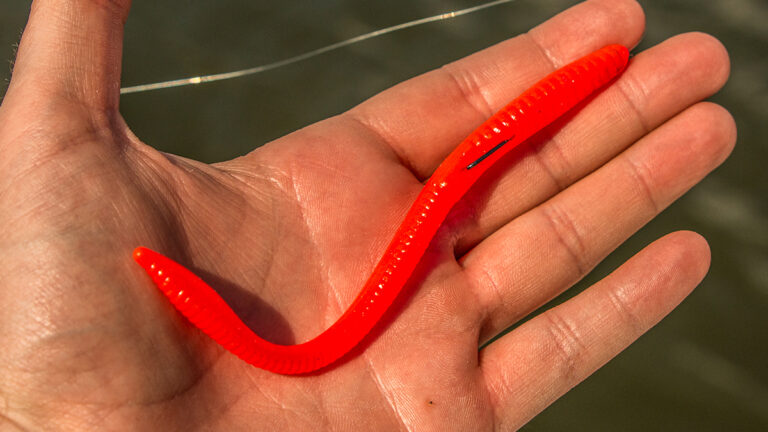
I had the word “natural” drilled into my head as I was a kid trying to learn more about bass fishing. I guess this was right at the beginning of the internet craze and I’d get on all kinds of obscure bass fishing forums, anything I could find, and research soft-plastic colors and the like. Everyone always said the word “natural” meaning green hues and sometimes purple hues in overcast conditions.
I do agree with that theory for most bass-fishing applications. But if you’re fishing a weightless soft-plastic rig for spring bass in skinny water, don’t be afraid to use some of those loud colors you might see in the soft-plastics aisle. They might look weird to us but again, a lot of these bass are super lethargic right now and they’re not biting your bait because they’re hungry; you’re creating an aggressive reaction and sometimes those funky-looking colors can help trip their collective triggers more than a more bland color scheme.
I love to throw a weightless Zoom Trick Worm on spinning gear this time of year and no, that is not a cheesy sales line… it flat-out catches ‘em. My favorite color is Merthiolate but heck, there are 63 colors to choose from on Tackle Warehouse. If I were you, I’d spend a little time on there and grab some of the gaudiest colors you can find. Rig ‘em weightless on a spinning rod and cast ‘em around any good-looking shallow cover… you might just have a day you’ll never forget. I can remember many days growing up when I’d get out of class on a spring afternoon and catch more than 30 bass on this rig before supper time.
Keep these things in mind this spring and please do yourself a favor and fish with a weightless soft plastic. You’ll have to fish it and twitch it a bit slower than normal but I’m confident your patience will be rewarded.





